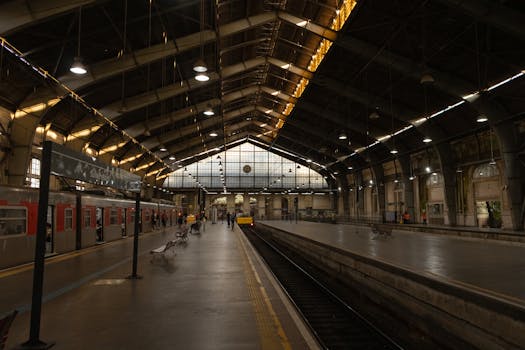PWG Business News: Your Gateway to Market Intelligence
PWG Business News is committed to providing real-time updates and expert-driven insights across various industries, including technology, healthcare, finance, energy, automotive, and consumer goods. We deliver carefully curated news, financial reports, and research-based updates, helping businesses and professionals stay informed and competitive in today’s dynamic business environment.
Our News section covers industry-shaping events such as market expansions, new product launches, mergers and acquisitions, policy shifts, and corporate earnings, offering a strategic advantage to decision-makers seeking actionable intelligence. By bridging industry leaders, stakeholders, and professionals with data-driven content, we empower our audience to navigate the complexities of the global market with confidence.
PWG Business News: Keeping You Ahead in the Business World
At PWG Business News, we deliver timely and credible business news, covering global market trends, economic shifts, and emerging opportunities. With comprehensive coverage spanning healthcare, technology, telecommunications, utilities, materials, chemicals, and financials, our platform provides accurate, well-researched insights that drive success for executives, investors, and industry professionals alike.
Whether you're tracking regulatory updates, innovation trends, or strategic collaborations, PWG Business News ensures you have access to high-quality, data-backed reports that enhance brand visibility, credibility, and engagement. Our mission is to keep you ahead by serving as your trusted source for impactful industry news and market intelligence.
Stay informed with PWG Business News – your gateway to the insights that shape the future of business.
Utilities

In a move that promises to revolutionize urban mobility in São Paulo, the Government of São Paulo and Brazil's Investment Partnership Program (PPI) have taken significant strides in modernizing commuter rail lines. This initiative includes a major concession agreement for three commuter lines, aimed at enhancing the efficiency and reach of the city's public transportation network. Recently, the process of selecting a preferred bidder for these commuter services has been a focal point, set to transform the quality of life for millions.
The concession contract, spanning 25 years, encompasses the Alto Tietê Lot, which includes the 11-Coral, 12-Sapphire, and 13-Jade lines of the São Paulo Metropolitan Trains (CPTM). This comprehensive project involves a substantial investment of approximately BRL 13.3 billion (equivalent to USD 2.3 billion) dedicated to modernization and expansion. Key aspects of the project include:
This ambitious project is designed to improve the travel experiences of commuters, particularly those in the eastern zone of the metropolitan region. It is estimated that by 2040, the network will serve approximately 1.3 million passengers daily, underscoring the immense demand for reliable public transportation in the region.
As the concession process unfolds, bidders are being evaluated for their ability to execute the extensive upgrades and expansions required. Key developments include:
Preferred Bidder Selection While the official announcement of a preferred bidder for the São Paulo commuter services concession has not been made, potential bidders have been expressing keen interest. The bidding process involves assessing the capacity of companies to manage and transform the existing infrastructure into a modern, efficient system.
Investment Partnerships and PPP Models Public-private partnerships (PPPs) have been instrumental in advancing São Paulo's transportation infrastructure. The concession model for the Alto Tietê Lot is a prime example of how PPPs can facilitate large-scale investments in infrastructure, balancing public needs with private sector expertise.
The expansion and modernization of these commuter lines will significantly enhance urban mobility in São Paulo. By reducing travel times and increasing service frequencies, residents will benefit from improved accessibility to employment opportunities, educational institutions, and healthcare services.
Enhanced Connectivity: The expansion of Line 13 from Guarulhos to Bonsucesso will connect key neighborhoods, facilitating travel to downtown São Paulo and promoting economic development.
Environmental Impact: By shifting more commuters to rail transport, the project aims to reduce traffic congestion and air pollution, contributing to a cleaner urban environment.
Increased Efficiency: Regular train services on Line 11 will operate at intervals of three minutes, while Line 12 will offer trains every three minutes, and Line 13 will see its regular service frequency improved from 20 to 15 minutes.
As São Paulo continues to evolve its public transportation network, challenges such as managing large-scale projects, ensuring integration with existing systems, and addressing community concerns will be paramount. The success of this concession will depend on effective collaboration between government entities, private operators, and local residents.
Metro and Buses: Efficient integration with metro lines and local bus services will be crucial to ensure seamless travel experiences for commuters.
Taxis and Ride-Sharing Services: Complementary modes of transport like taxis and ride-sharing apps will need to be coordinated with rail services to optimize urban mobility solutions.
Public consultations have been pivotal in incorporating feedback from the community into the project's development. This engagement has helped tailor the infrastructure improvements to meet the specific needs of residents, ensuring the project's long-term success.
The concession for São Paulo's commuter services marks a significant step forward in addressing the city's transportation challenges. As a preferred bidder is set to be announced, residents can look forward to improved travel options and enhanced urban mobility. This transformation will not only improve daily commutes but also play a critical role in shaping the economic and social development of the metropolitan region.
Q: What are the key commuter lines involved in the concession? A: The concession involves the modernization and expansion of the 11-Coral, 12-Sapphire, and 13-Jade lines of CPTM.
Q: How will the services improve under the concession agreement? A: The project aims to reduce travel times, increase service frequencies, and enhance station facilities to provide a more efficient and comfortable public transportation experience.
Q: What is the expected impact on urban mobility? A: The project will improve connectivity, reduce traffic congestion, and enhance environmental quality by encouraging more commuters to use rail transport.
As São Paulo embarks on this transformative journey, the successful implementation of the concession will set a precedent for future urban mobility solutions in Brazil and beyond.